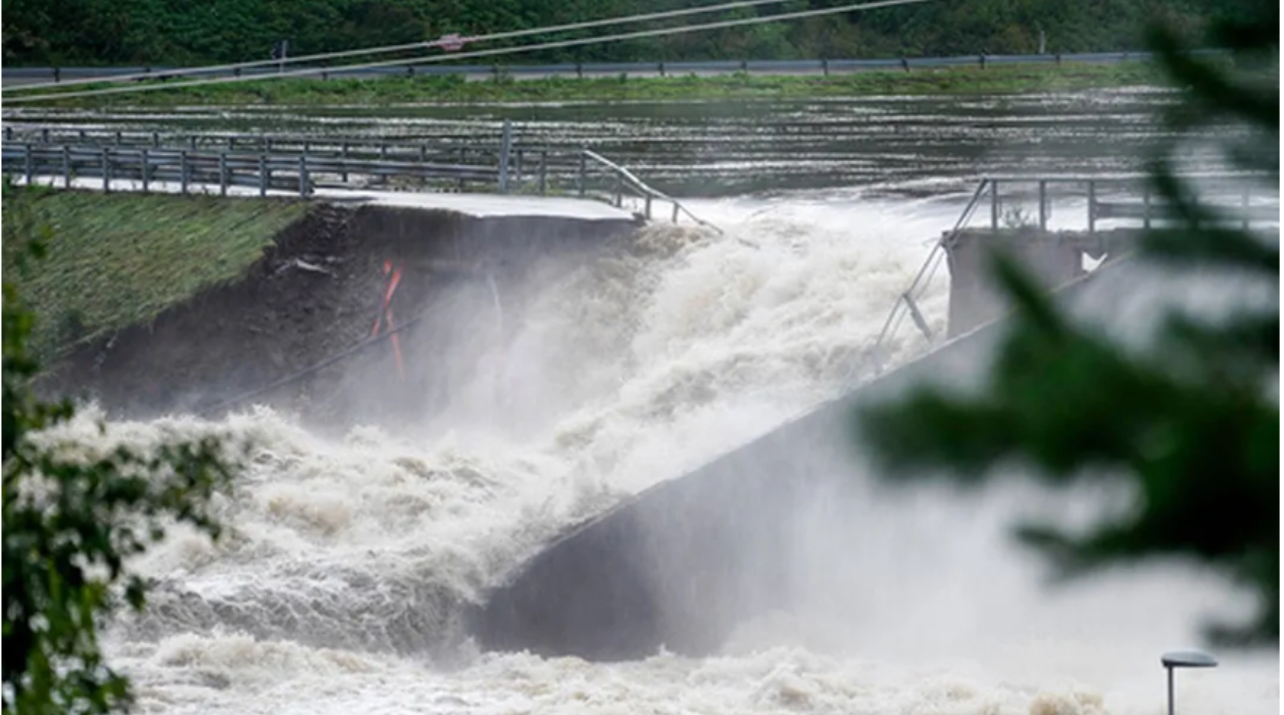The Weekly Reflektion 02/2024
Many industries are using remote monitoring and operation in the search for safer, more reliable, and lower cost operations. This inevitably requires secure communication systems and often a central control room where incoming information is assessed, and actions taken. When conditions become extreme there is also a requirement for anticipation of the consequences and prompt actions to reduce these. Anticipation and prompt action is dependent on the people involved and their training and experience is a key factor in the response.

The dam at the Braskereidfoss hydrostation breached during storm Hans
Are your people ready to take the appropriate actions in extreme conditions?
Thanks to Steven Vidal for sending us some background information and for his insights into a challenge we face in all industries and in our daily lives. ‘A lack of understanding of the risks associated with our activities’.
Storm ‘Hans’ was an extreme weather event that affected areas of southern Norway as well as parts of Sweden, Finland, the Baltics and nearby areas from August 7 to 9, 2023. The extreme weather led to landslides, flooding, and major damage to infrastructure and property, especially in the Norwegian counties of Innlandet and Viken. During the storm the dam at the Braskereidfoss hydroelectric power station was breached. There was a fault in the distribution system that resulted in a shutdown of the power turbines. Without the flow through the turbines the water levels quickly rose and threatened the dam’s integrity. Flood gates in the dam were not deployed to divert the water around the dam. The power station was flooded, and the dam was breached when the filling mass collapsed. The water torrent from the breach also washed away the foundations of a mast carrying the high voltage cables from the station.
A report from 2018 had concluded that the dam would not tolerate a so-called ‘overtopping’ in an extreme weather situation. The need to open the flood gates in such a situation was therefore forewarned. Hafslund Eco that operate the power station engaged DNV to investigate the incident and several reasons have been identified for why the flood gates were not opened. The direct cause was that not enough attention was paid to the rising water level and the alarms that were being received on the developing situation. The operators were not prepared for the sudden stop of the water turbines and the resulting restriction in flow. The management in Hafslund made the following statement.
We were not well enough prepared for such a demanding situation and our contingency plans made us too dependent on the operations centre functioning optimally, even under extreme load.
Extreme weather, or any other extreme event or combinations of events puts extreme pressure on the systems and people that are in place to manage the response. People need to be trained not only in how to handle any situation that arises but to anticipate the situation and prepare themselves for the response. Scenarios used in training need to include the extremes especially if these have been predicted.
Reflekt has written several Reflektions on ‘Human Performance’ and we of course have the benefit of hindsight when we use incidents and accidents to explain the challenges. The purpose of hindsight is not to judge the people involved. The purpose is to learn and to prevent putting others in the same situation.
